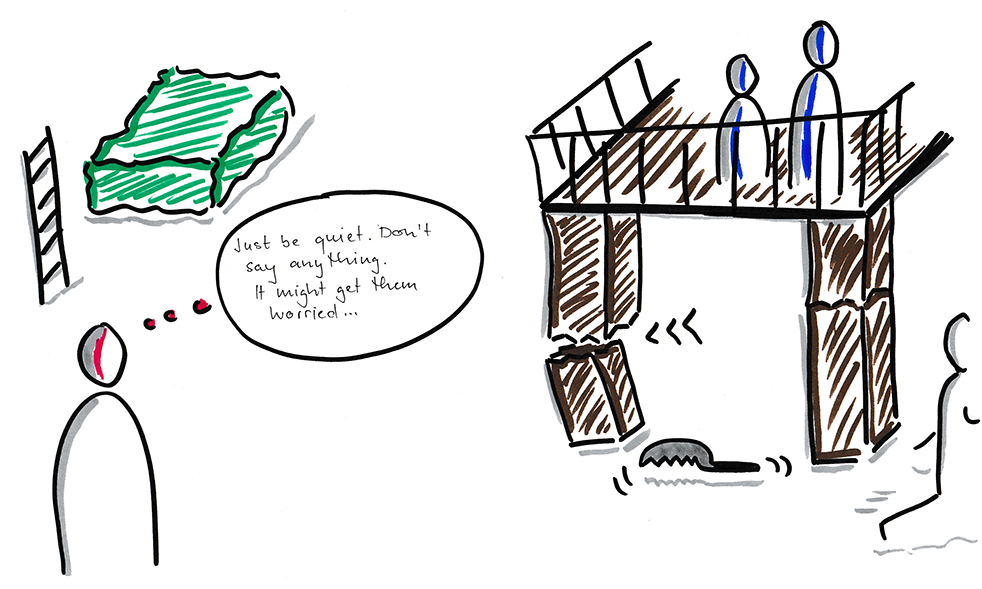How good are you in telling people bad news? The better you can talk about problems the better the solutions will be. Agile values value bad news and help you talking about them.
Lately I had an all-TV-day. I felt sick and parked myself in front of the TV. I watched series for children, teenagers, young adults, families. I felt miserable and the series made me worse. I needed a while before understanding what it was. There was one common topic, an unspoken topic. The thing all these series were built upon was the following culture technique: Don’t tell someone you love any bad news because it might hurt them. What happens then is that they naturally find out the bad news anyway and they get mad and they get very, very hurt. I’m not sure about what the learning proposition is intended to bee, though.
I think it is pretty logical that these strategy will never work. Perhaps they do sometimes in real life. But they never do in TV. And yes, I am aware of suspense and that there has to be conflict because else it would be boring – but really, once I got the point it made me overly tense like in a horror movie. In real life I can imagine for example a parent trying to protect a child from all the bad in the world by telling lies and not telling all that is going on. Typical american series example is the dog that lives somewhere on a beautiful farm and has a better life now. But really: How does a grown up person feel if somewhen they do discover the truth of the dead dog. Especially if they never learnt to deal with bad news in their childhood?
How about in other places, let’s say: work? Last week someone called me on my phone. As soon as I knew who it was, I also new that this had to be bad news. He doesn’t call often but rather writes an e-mail. Before getting mad I listened to the problem he described to me and as it was an urgent matter my brain automatically started to think about solutions we could approach. He too had some propositions about how to solve the situation. And after just a few questions we had a new plan. Before you can make a new plan, before you can plan the solution, you have to know about the problem. You need to analyze it profoundly in order to find the appropriate solution. You need to know all the bad news. Bad news is the prerequisite to create any solution.
I’ve already written about how in small talk you cannot address negative topics and how people have a tendency towards not telling negative things. It makes everyones life harder. The five values of Scrum – commitment, courage, focus, openness, respect – help talking about bad news: If you really are committed to a cause or to a person, you will talk even about bad news. It does need courage, though. But if you are focused on that thing and on how to solve it and if your counterpart is open – because they know you’re always respectful – you will find a solution that fits the problem.
